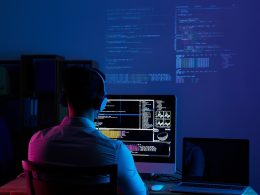Programming is a skill that is in high demand, and it can be incredibly rewarding to master. However, for those who are new to programming, it can also be overwhelming. With so many programming languages and tools to choose from, it can be hard to know where to begin. In this beginner’s guide, we will explore the fundamentals of programming and provide some tips for getting started.
Choose Your Language
The first step in programming is choosing a language. There are numerous programming languages to choose from, each with its strengths and weaknesses. Some of the most popular languages include Python, Java, C++, and JavaScript. The best language for you will depend on what you want to achieve with your code, and what you are most comfortable working with. Take the time to research the different languages and find one that suits your goals and interests.
Start with the Basics
Once you have chosen your language, it’s time to start learning the basics. The fundamentals of programming are largely the same across languages, so it’s important to get a good grounding in concepts like variables, loops, and conditionals. These are the building blocks upon which more complex programs are built. There are numerous resources available for learning the basics of programming, including books, online tutorials, and classes.
Practice, Practice, Practice
As with any skill, practice is the key to becoming proficient in programming. It’s important to write code regularly and try out new concepts and techniques. One way to practice is to work on small projects or challenges. This can help you build your skills and provide a sense of accomplishment. There are also many online communities and forums dedicated to programming that can help you connect with others, share your work, and get feedback.
Debugging
No matter how skilled you are as a programmer, you will inevitably run into bugs and errors in your code. The ability to debug effectively is a crucial skill for any programmer. This involves identifying where your code is breaking down and fixing the problem. There are many tools available to help with debugging, including debuggers built into programming environments, as well as online resources and forums.
Conclusion
Programming can be a challenging yet rewarding pursuit. With the right tools and resources, anyone can learn to write code. Start by choosing a language that suits your goals and interests, and focus on learning the basics before tackling more complex projects. Practice regularly and don’t be discouraged by bugs or errors – debugging is an essential skill for any programmer. With persistence and dedication, you can become proficient in programming and unlock endless possibilities.










